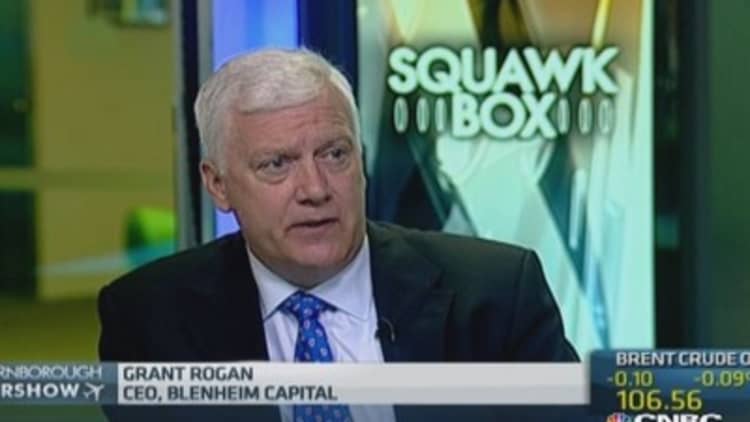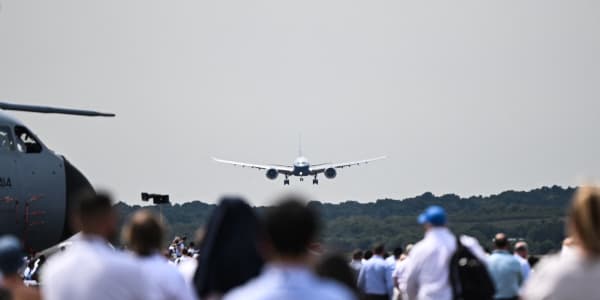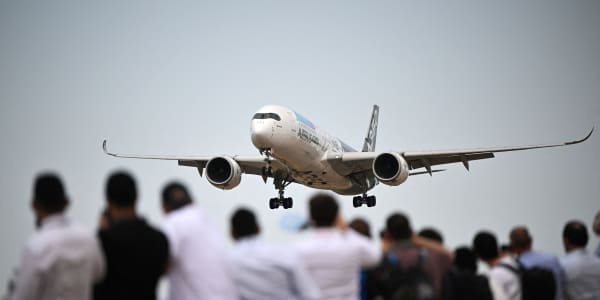Planes could be hijacked by cybercriminals using complex hacking techniques, warned experts at Farnborough International Airshow, where security in the sector is proving a hot topic.
Just as a home device is susceptible to cyberattacks, systems on some of the most advanced airplanes are under threat, according to Steven Hawkins, vice president of international solutions at Raytheon's Intelligence, Information and Services division.
"(Planes) are all controlled by computers. Think about autopilot - these are critical systems," Hawkins told CNBC at Farnborough.
"I think there are examples where individuals have done that with unmanned vehicles… and there is no reason why that can't happen on planes."
This could be a new battleground for terrorists, he warned, with hackers looking to exploit aircrafts' electronic systems, which are becoming increasingly interconnected.
Hacker responsible for missing jet?
Aviation regulators have also expressed concern over potential cyberattacks on aircraft. The U.S. Federal Aviation Authority (FAA) ordered Boeing to modify the technology on its 737 aircraft to prevent any vulnerabilities in June.
Read MoreSecret Service warns on hotel biz center computers
A cybersecurity breach was also floated as a reason why Malaysian Airlines flight MH370 went missing, though no evidence has surfaced to support this.

Despite the worries, however, security experts agree that hackers are unlikely to be able to bring down a plane at the moment – although it could be possible in the future as cybercriminals get more advanced.
"In the longer term it is something regulators will be aware of when connecting more and more systems," Alastair Paterson, CEO of cybersecurity firm Digital Shadows, told CNBC in a phone interview.
Read MoreBAE admits to misrepresenting cyberattack
"I think there is a risk that hackers become more sophisticated in the attacks they can perform, but I don't think there is capability yet to bring down a plane."
'Trillions of dollars'
Cyber-espionage – where countries or companies look to steal information from rivals – is another pressing concern faced by the aviation sector.
The threat is "huge", according to Hawkins, who said not only would intellectual property of aviation companies be at risk, but it could have a massive impact on a country's economy.
Read MoreWhy cyber-insurance will be the next big thing
"The damage could be in the trillions of dollars, with either countries or other companies penetrating networks to get information. It would be a huge drain on the economy," he said.
The issue has been thrust into the spotlight following the revelations of ex-NSA employee Edward Snowden on the level of covert online monitoring by the U.S. online





